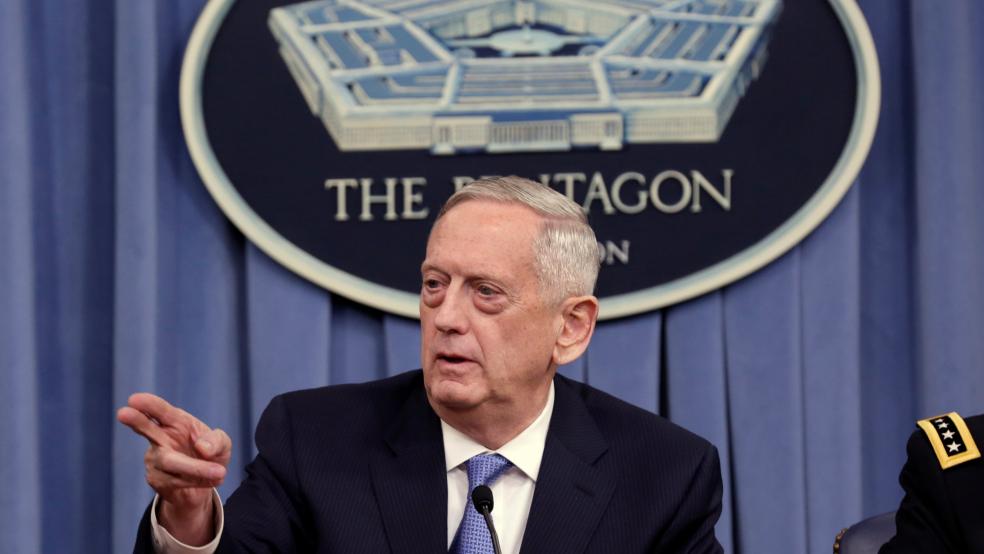Bloomberg’s editorial board weighs in on last week’s bipartisan National Defense Strategy Commission report warning Congress that America’s military superiority has eroded to such an extent that the country “might struggle to win, or perhaps lose, a war against China or Russia.”
One reason for the rising risk is budget unpredictability for the Pentagon: “Thanks to Congress’s sequestration caps and last-minute omnibus reconciliation deals, the military has to guess every year how much money it will have to spend,” Bloomberg’s editorial board explains. “Such unpredictability makes intelligent long-term planning almost impossible. And it wastes money by leading the Pentagon into an inefficient, last-minute spending spree at the end of flush fiscal years. The Navy alone estimates that budget uncertainty has cost it $4 billion since 2011.”
Their proposed fix might raise some eyebrows among budget hawks, though, given that the federal deficit is projected to reach $1 trillion as soon as this fiscal year and continue rising from there:
“Congress could guarantee the Pentagon a consistent annual raise of, say, 3 percent or so above inflation for five to 10 years. Defense planners would have to give up any expectation of big single-year bonanzas. But the consistency would be worth it.”
The editorial suggests that the midterm election results might provide an opening “to get budget hawks and defense hawks in Congress, as well as the president, on the same page,” since Rep. Adam Smith (D-WA) and Sen. James Inhofe (R-OK), who will chair the House and Senate Armed Services Committees in the next Congress, have both spoken about the need for defense budget certainty.
Can the two parties possibly come together on the defense budget?
Inhofe recently spoke out against President Trump’s surprise order to cut the fiscal 2020 defense budget to $700 billion, insisting that the original $733 billion figure “should be considered a floor, not a ceiling, for funding our troops.”
Smith, meanwhile, has a reputation as a defense budget hawk and has emphasized the need for fiscal responsibility. “It is my firm belief that, given the $22 trillion debt and trillion-dollar deficit produced by the Republicans’ tax cuts, the Pentagon is going to have less money in the future. We need to scrub the defense budget to better reflect that reality,” he told McClatchy last week.
One final point: It’s probably worth noting that others have questioned whether throwing more money at the Defense Department is the right way to address the strategic issues raised by last week’s National Defense Strategy Commission report. “Obviously if we’re vastly outspending Russia and China and we’re losing our competitive edge, our problem is not spending,” Dan Grazier, a fellow at the nonpartisan watchdog Project on Government Oversight, told the Washington Examiner.





